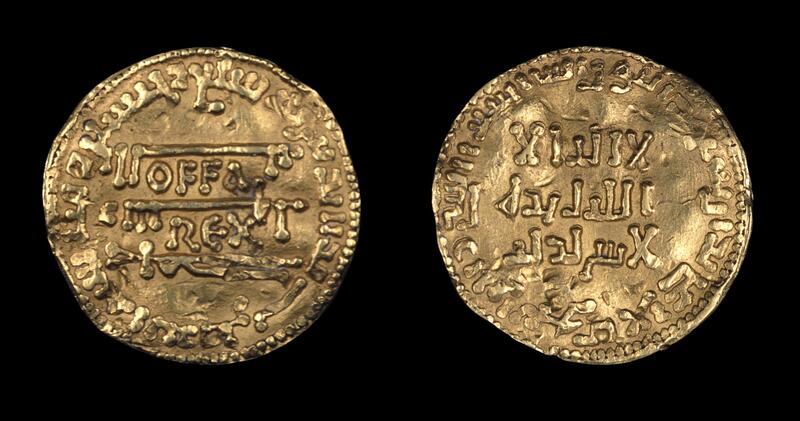Offa dinar
Type:
Coins
Date:
774–796
Medium:
Gold
Dimensions:
2 cm
Description:
This gold coin was minted by Offa, ruler of the kingdom of Mercia in south-central England (r. 757–96). The Latin inscription on the front says "OFFA REX" (King Offa). The coin closely imitates a dinar issued in 773/4 by al-Mansur, the Abbasid caliph in Baghdad (r. 754–75). The English die maker did not know Arabic and introduced some errors in copying the Kufic script of the original. Offa's name and title were inserted upside-down into the Muslim profession of faith (There is no God but God). On the reverse, the three central lines affirm the oneness of God, from sura 112. Such Islamic gold dinars were widely recognized and used for international trade around the Mediterranean; in the north, silver coins (dirhams) were much more common. Offa either saw an Abbasid coin or imitated a Carolingian copy of one in order to trade with people to the south (in fact, the coin seems to have resurfaced in Rome in the nineteenth century). The wear on the coin suggests that this venture was successful.
Relevant Textbook Chapter(s):
4
Repository and Online Resources:
• Read more about this coin on the website of the British Library.
• See "Some imitation Islamic coins minted in early medieval Europe," on Dr. Caitlin R. Green's website.
• Listen to a short podcast by Prof. Marcus Milwright about a coin from Baghdad (803/4) found in a hoard in Scandinavia.
Image Credits:
British Museum

